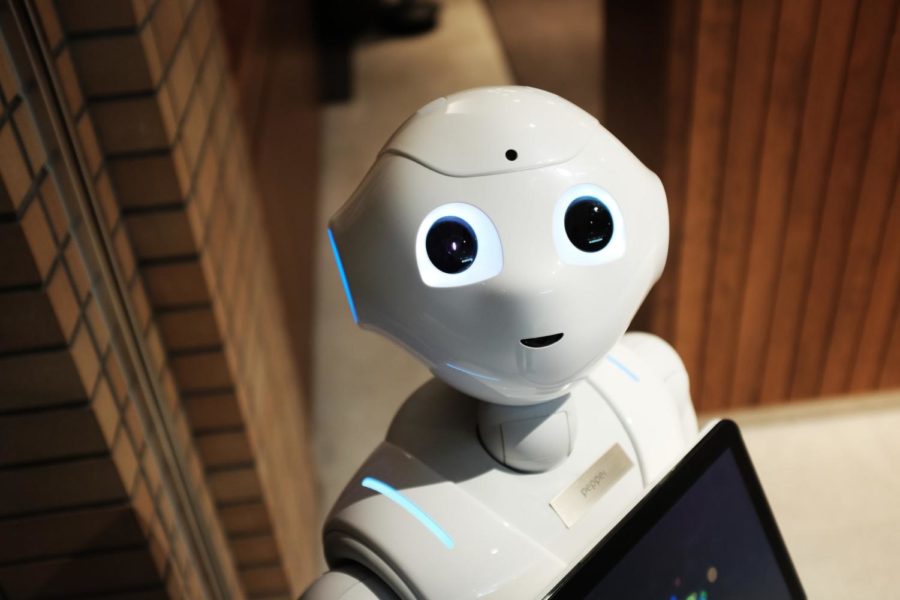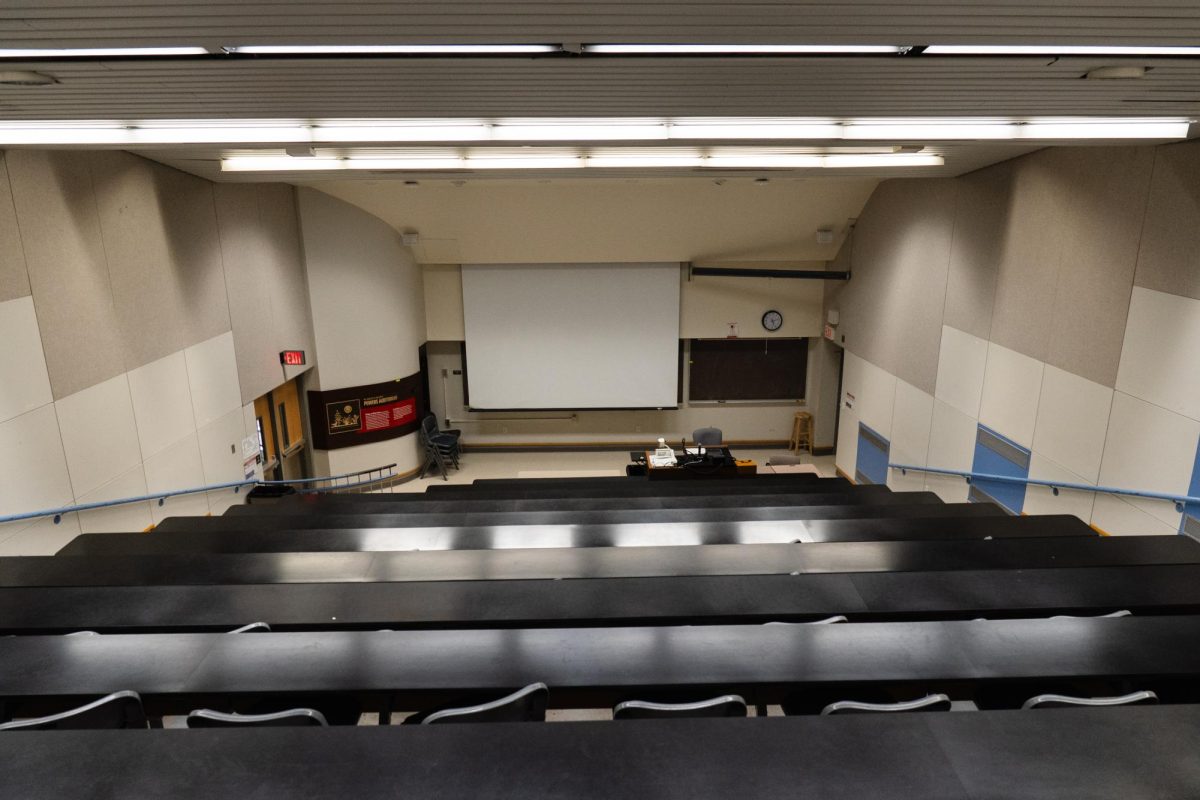Tetmeyer: The reality of living in the future
Courtesy of Alex Knight/Unsplash
Columnist Grant Tetmeyer explains why he is worried about the future of technology and humanity.
January 17, 2022
2022 has arrived. We have all managed to survive another year on this Earth. We survived an ongoing pandemic, iconic deaths, intense political strife, deep personal differences and the weirdest season of football that I, personally, have ever seen. We have achieved great heights such as the first commercial space flights by insanely rich people, established a push for green and electric energy and even the creation and activation of one of the most lifelike robots yet. This is where we start to worry — because every dystopian movie has shown me that this is where the trouble of staying human and separating humanity from technology begins.
The company Engineered Arts created Ameca, “the world’s most advanced robot,” as billed by the company. It is a full-body, humanoid robot that can move and react to outside stimuli with an uncanny human response. It has the capability to display complex emotions and thoughts. It even goes so far as to shoot down someone hitting on it and stop an engineer from bopping it on the nose. And as exciting as this is, as it means we move one step forward to personal robots and humanoid house helpers, we must venture into this new frontier with extreme caution. We are approaching the era where the poorly forecasted futuristic world of past cartoons and science fiction is slowly becoming fact. One hundred years ago, aviation had just come into its own, and the thought of the pocket phone was the thinking of idealists and writers. Now, we walk around with small computers in our pockets. The problems proposed as fun concepts are fast approaching a need for real contemplation.
Take Ameca, for example. If a robot can truly have such advanced reactions and perceptions of its world, what then becomes the distinction between man and machine? What is to keep us from preventing a Blade Runner replicant scenario? I know that sounds like the ramblings of a crazy person, but every major piece of technology we have was once considered impossible. Humans have become well known for making dreams reality. But if we can make dreams, we can also make nightmares.
One other thing to consider is sentience. Once you give something sentience, like a robot, can we simply take it away? We have determined animals have sentience, some even on the same level as humans. I’m sure an A.I. can develop the same level of thought. The game “Hello, Neighbor” is a game with a learning A.I. game program. Social media algorithms learn what you like and don’t like and target advertising. A.I. can interpret a keyword or phrase and create works of art that move people just as much as some human art does. If there are robots capable of these things now, imagine what they might be capable of in 50 years.
Now, I’m not saying destroy all robots. What I’m saying is that we must be extremely cautious as we venture further down this path because this type of research and robotics work is one of the closest ways for humans to play God along with conception. We have to understand what that truly means and the extent of the consequences.

















